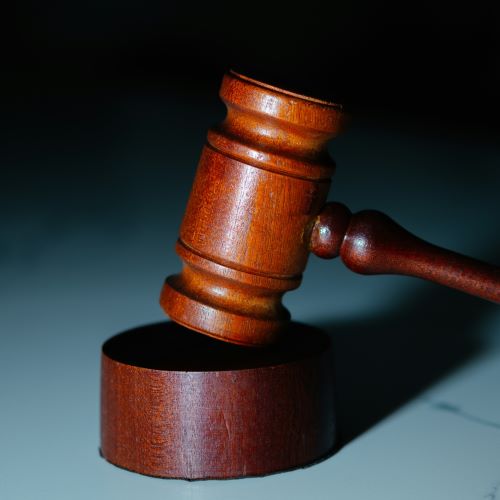2024 Legislative Session Environmental Impact Summary
August 20, 2024 Meredith DiIoia
The Office of Sustainability provides a recap of the environmental legislation that was passed during Maryland’s 2024 General Assembly.
The Office of Sustainability at the University of Maryland, Baltimore (UMB) has compiled a list of environmental legislation from Maryland’s 2024 General Assembly session. It identifies key environmental legislation passed during the session that impacts sustainability work at UMB and highlights environmental legislation that does not impact our work directly but impacts the environment at-large.
The first environmental legislation that impacts UMB is Senate Bill (SB) 0258/House Bill (HB) 0130. The bill focuses on energy conservation and greenhouse gas emissions reductions in state buildings and facilities. SB0258/HB030 alters the state’s goals for reducing energy consumption in state buildings, requires the Maryland Green Building Council to update the High-Performance Green Building Program to ensure that the program aligns with certain greenhouse gas emissions reduction goals, and requires the Department of General Services to identify state-owned facilities that are potential candidates for energy performance contracts.
This bill codifies an executive order issued by Gov. Wes Moore in summer 2023 that enumerated several initiatives that state buildings would take to monitor and improve efficiency in support of greenhouse gas reduction. This bill impacts UMB by requiring us to reduce our energy consumption in state-owned buildings by 20 percent by 2031 compared with a Fiscal Year 2018 baseline.
The second piece of environmental legislation that impacts UMB is SB0783/HB1435, which is known as the Brighter Tomorrow Act and aims to accelerate Maryland's solar energy adoption by extending tax exemptions for community solar projects and establishing a consistent payment in lieu of taxes (PILOT) structure for ground-mounted solar installations. It also establishes a short-term solar renewable energy credit (SREC) multiplier as a bridge to long-term reforms. This bill was drawn from recommendations from the Solar Incentives Task Force and was a priority of the Maryland League of Conservation Voters.
This bill incentivizes locating solar-generating systems on existing infrastructure like rooftops, parking canopies, and brownfields. This legislation impacts future rooftop solar canopy projects at UMB in a few ways:
- SREC production will count for 150 percent (for every 2-megawatt hours of energy produced, three SRECs will be credited)
- SREC lives will be extended from three years to five years.
- Parking facility canopy projects are not subject to valuation or property tax.
Below is environmental legislation that was passed during this past session but does not directly affect operations at UMB. To find this list of legislation with full descriptions from Green Building Law Update, visit this link.
Greenhouse Gas Emissions
- HB0990: Greenhouse Gas Emissions Reduction — Manufacturers
- HB0864: Energy Efficiency and Conservation Plans
- HB0579/SB0474: Critical Infrastructure Streamlining Act of 2024
Waste Management and Procurement
- SB0325/HB0001: Maryland Paint Stewardship
- HB0457: Synthetic Turf — Disclosure and Study
- HB1147: Playground Surfacing Materials — Prohibitions
Clean Energy
- HB1296: Offshore Wind Projects — Alterations
- SB0570/HB0397: Working for Accessible Renewable Maryland Thermal Heath (WARMTH) Act
- SB0959/HB1256: Distributed Renewable Integration and Vehicle Electrification (DRIVE) Act
Indoor Air Quality
- HB0238: Clean Indoor Air Act — Revisions
Trees
Chesapeake Bay
- HB0233: Critical Area Protection Program — Climate, Equity, and Administrative Provisions
- SB0268: Critical Area Protection Program — Enforcement
Water
- SB0653/HB1101: Clean Water Justice Act of 2024
- SB0956/HB1153: Protecting Safe Waters from PFAS Pollution Act
Flooding
Consumer Protection
- SB0001: Electricity and Gas — Retail Supply — Regulation and Consumer Protection